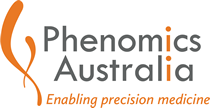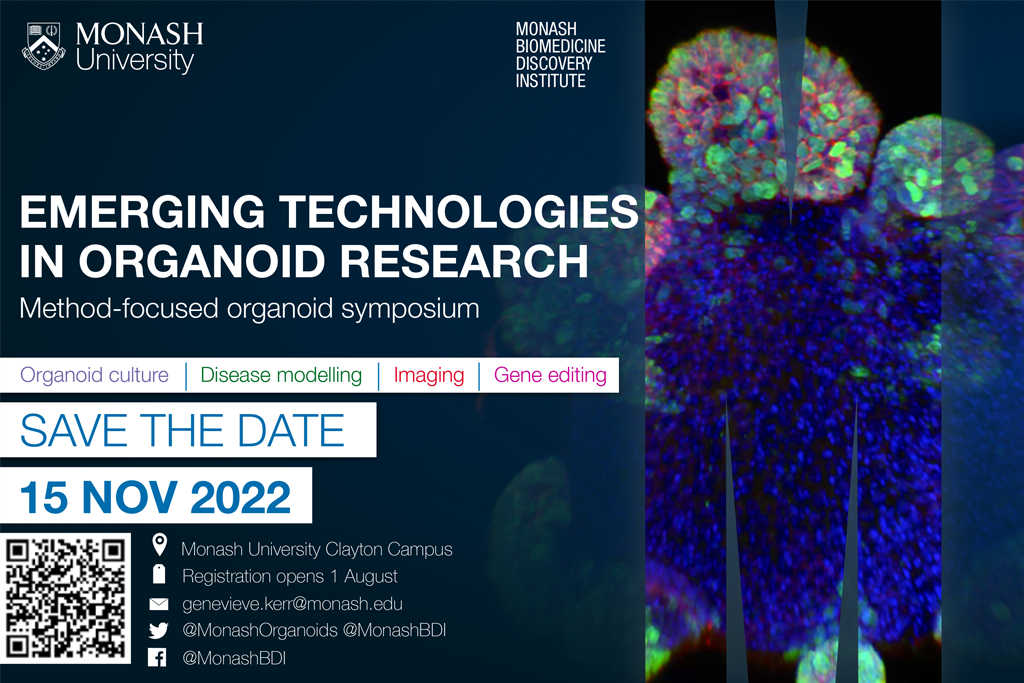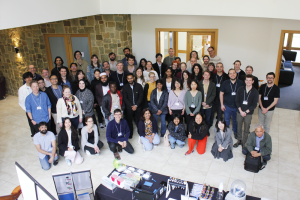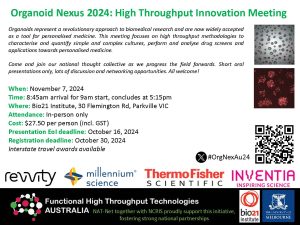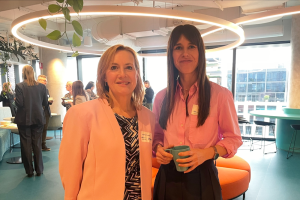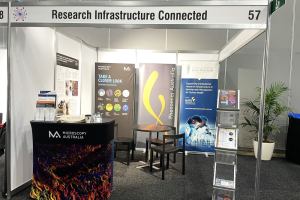Emerging technologies in organoid research: method-focused organoid symposium
It is a pleasure to announce the forthcoming Emerging technologies in organoid research symposium that will be held at Monash University, Clayton Campus on November 15, 2022. Save the date! More information and how to register here.
About this event
Organoids are an innovative 3D, organ-like, cell culture system that recapitulates the cellular organisation, architecture and many physiological functions of the original tissues from which they are derived. Organoids can be derived from mouse or human, normal or diseased tissue, as well as the different stages of cancer progression: They exhibit biological stability, allowing passaging and cryopreservation, while maintaining a degree of heterogeneity.
Organoids can be used to study host pathogen interactions, assess the effect of environmental factors on normal or cancerous tissue, investigate the basic biology of stem cells and differentiation, decipher the involvement of key molecules in cancer initiation and progression, and for preclinical testing of novel therapeutics. Organoids can also be genetically modified for disease modelling using human cells.
The Monash BDI Organoid Program are hosting a FREE one-day symposium focused on Emerging Technologies in Organoid Research to be held at the Monash University, Clayton Campus on Tuesday, 15th November, 2022.
The content for this symposium has been developed based on the requests and enquiries from a number of key groups who are currently working with organoids, as well as those who are interested in learning how to utilise organoid technology for their own research questions.
Registration closes 6pm, Tuesday 8th November 2022.
Direct any queries to Dr Genevieve Kerr (genevieve.kerr@monash.edu).
